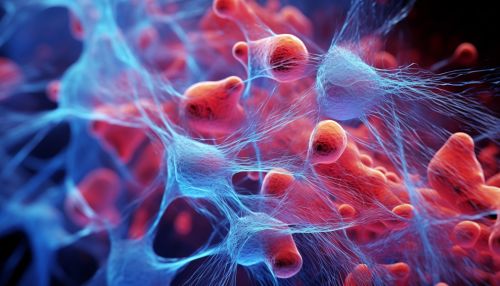Terminal Deoxynucleotidyl Transferase
Overview
Terminal Deoxynucleotidyl Transferase (TdT) is a DNA polymerase enzyme that is expressed in immature, pre-B, pre-T lymphoid cells, and acute lymphoblastic leukemia (ALL) cells. It is unique among DNA polymerases in that it functions without a DNA template, adding deoxynucleotides to the 3' ends of DNA molecules. This process is critical for the generation of diverse antigen receptor repertoires in B and T lymphocytes, a process known as V(D)J recombination.


Biochemical Properties
TdT is a member of the X family of DNA polymerases and is the only DNA polymerase that can add nucleotides at the DNA break sites in the absence of a DNA template. It has a molecular weight of approximately 58 kDa and is composed of a single polypeptide chain. TdT has a high affinity for both DNA and RNA, and can incorporate a variety of modified nucleotides, including those with fluorescent or biotin tags. Its activity is dependent on divalent cations, particularly Co++ and Mn++, and it is inhibited by N-ethylmaleimide and high salt concentrations.
Biological Function
The primary biological function of TdT is to add nucleotides to the V, D, and J exons during the process of V(D)J recombination, thereby generating antigen receptor diversity. This process is critical for the development of the adaptive immune system. In addition to its role in V(D)J recombination, TdT has been implicated in the repair of double-strand breaks in DNA, although its role in this process is less well understood.
Clinical Significance
TdT is a valuable diagnostic marker for acute lymphoblastic leukemia (ALL), as it is expressed in over 90% of cases. It is also expressed in some cases of acute myeloid leukemia (AML), although to a lesser extent. The presence of TdT in leukemia cells is associated with a more aggressive disease course and a poorer prognosis. TdT is also a target for therapeutic intervention in ALL, with drugs such as nelarabine that inhibit TdT activity showing promise in clinical trials.
